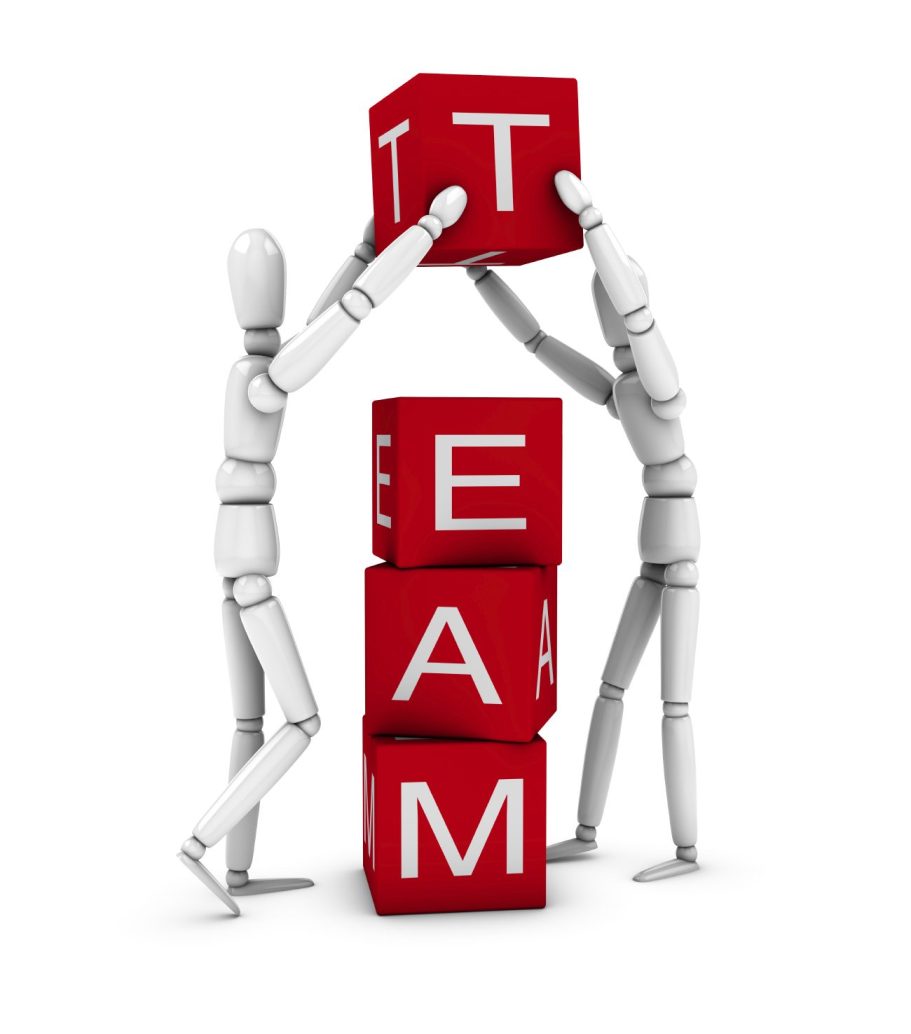Blogs and News...
What I learnt, read and observed, what I thought about it...and other news! Follow me on LinkedIn.
Bringing The Nous House Thinking to You
August 2024
The Power of Contracting!
As the Paris Olympic Games spirit and successes keep reminding us, effective collaboration is more critical than ever. Teams are the backbone of any successful enterprise, organisation or project, driving innovation, productivity, and overall performance. However, even the most skilled and motivated groups can encounter obstacles if expectations, roles, and goals are not clearly defined. This is where a team contract can be a game-changer.
What is a Team Contract?
A team contract is a formal agreement among team members that outlines their collective goals, individual roles, responsibilities, and the behavioural norms expected within the group. It serves as a roadmap for how the team will work together, resolve conflicts, and achieve its objectives. Essentially, it is a mutual understanding that aligns the team's vision, strategies, and operations, ensuring that everyone is on the same page.
The Benefits of a Team Contract
Enhances Collaboration and Integration:
- Clarity of Roles: A team contract eliminates ambiguity by clearly defining each member’s role and responsibilities. This ensures that everyone knows what is expected of them, reducing overlap and potential conflicts.
- Shared Vision: By collectively agreeing on goals and objectives, a team contract fosters a shared vision, which is crucial for effective collaboration. It aligns individual efforts towards a common purpose, creating a sense of unity and commitment.
- Structured Communication: With established protocols for communication, decision-making, and conflict resolution, a team contract enhances transparency and efficiency. This structure allows for smoother integration of ideas and efforts across the team.
Optimises Outcomes:
- Accountability: By setting clear expectations, a team contract holds each member accountable for their contributions. This accountability drives performance, as team members are more likely to deliver on their commitments when they have explicitly agreed to them.
- Focus and Efficiency: A well-crafted team contract helps to maintain focus on the team’s priorities. It minimises distractions and ensures that all efforts are aligned with the desired outcomes, leading to higher efficiency and productivity.
- Continuous Improvement: A team contract often includes mechanisms for regular review and feedback, allowing teams to adapt and improve continuously. This iterative process ensures that the team remains agile and responsive to changes, further optimising outcomes.
Comparing Team Contracts to Coaching Contracts
Interestingly, the concept of a team contract shares similarities with contracts used in coaching relationships between a coach and a coachee. In both cases, the contract serves as a foundation for a productive and goal-oriented partnership.
- Goal Setting: Both contracts begin with a clear definition of the goals to be achieved. In coaching, these goals are often personal or professional development objectives; in a team context, they are typically project or organisational targets.
- Mutual Agreement: Just as a coaching contract is a mutual agreement between coach and coachee, a team contract is a collective agreement among all team members. Both emphasise the importance of commitment and accountability from all parties involved.
- Behavioral Expectations: In coaching, the contract often outlines the behaviours and attitudes expected from the coachee, such as openness to feedback and willingness to change. Similarly, a team contract defines the behavioural norms within the team, such as respect, collaboration, and communication standards.
The comparison is valid because both types of contracts aim to optimise the outcomes of a collaborative relationship by ensuring that all participants are aligned, committed, and accountable.
The Impact of Team Contracts on Organisations, Projects, and Individuals
Organisational Benefits:
- Cultural Alignment: A team contract can reinforce the organisation's culture by embedding its values and expectations into the team's daily practices.
- Consistency: It promotes consistency in how teams operate across the organisation, ensuring that best practices are followed and organisational standards are upheld.
Project Benefits:
- Improved Project Outcomes: Projects are more likely to be delivered on time, within scope, and on budget when teams are aligned and focused, as facilitated by a team contract.
- Risk Mitigation: Clear roles and responsibilities reduce the likelihood of critical tasks being overlooked, thus minimising risks.
Individual Benefits:
- Personal Growth: Team contracts can foster an environment where individuals feel supported and valued, which can enhance their personal and professional development.
- Job Satisfaction: When team members know their roles and see how their contributions align with the team’s goals, they are more likely to experience job satisfaction and fulfillment.
Conclusion
A team contract is not just a formal agreement; it is a strategic tool that enhances collaboration, integrates diverse perspectives, and optimises outcomes at every level—organisational, project, and individual. Its parallels with coaching contracts further highlight its value in fostering goal alignment, accountability, and continuous improvement. As organisations continue to navigate the complexities of complex work environments, the team contract will undoubtedly remain a cornerstone of effective teamwork and success.
References
- Katzenbach, J. R., & Smith, D. K. (1993). The Wisdom of Teams: Creating the High-Performance Organization. Harvard Business Review Press.
- West, M. A. (2012). Effective Teamwork: Practical Lessons from Organizational Research. BPS Blackwell.
- Whitmore, J. (2010). Coaching for Performance: Growing Human Potential and Purpose. Nicholas Brealey Publishing.
- Salas, E., & Fiore, S. M. (Eds.). (2004). Team Cognition: Understanding the Factors That Drive Process and Performance. American Psychological Association.
June 2024
Governance...L'Enfant Terrible!
Having spent many years as a programme sponsor and governance and assurance expert, I have heard countless opinions on governance. But does everyone truly embrace it as a key to success?
What is Governance?
In project management, governance encompasses policies, procedures and standards that guide project execution, aligning organisation strategic goals, stakeholders’ expectations and optimising benefits realisation. Good governance ensures decisions are made wisely and in a timely manner, and accountability is maintained.
How Does Good Governance Look Like?
- Clear roles and responsibilities: Everyone understands how they add value and how they contribute
- Transparency: Decisions are made in a transparent and open way
- Accountability: Mechanisms hold teams and individuals accountable for their actions and decisions
- Delegation of authority: Scope of authority are clearly defined, and resources are skilled and trained to use it
- Participation: Stakeholders have a voice in decision-making
- Rule of law: Adherence to policies and standards is maintained and upheld
- Equity and inclusiveness: All stakeholders are treated equally and fairly
How Do You Make It a Success?
- Clear documented governance frameworks included well defined accountabilities, roles and responsibilities
- Leadership buy-in: One model for all!
- Regular training and communication: Keep everyone informed, skilled and up-skilled
- Leverage Technology: Use tools for tracking, reporting, and compliance
- Continuous improvement: Review and refine, adapt to changing project dynamics and lifecycle phases
Success in governance is not magic, it comes through discipline, consistency, and incentivising adherence to governance practices. When teams and individuals understand its importance, they contribute to fostering a collaborative environment enhancing project performance and organisational cohesion.
What is the Impact of Good Governance?
- Optimised project outcomes: Beyond the project management triangle, governance improves risk management, resource allocation, and stakeholder engagement
- Enhanced culture and behaviours: Governance fosters accountability, trust, transparency and continuous improvement. Teams and individuals feel empowered to take ownership, make decisions and feel supported in the process
- Increased integration and collaboration: Encourages cross-departmental thinking and aligns projects with strategic objectives.
Governance: L'Enfant Terrible?
Governance is often perceived as being bureaucratic and adding unnecessary layers of oversight. Many project teams view governance as a set of cumbersome rules that slow down decision-making and stifle innovation. This perception arises from the challenges in balancing control and flexibility. Effective governance requires a deep understanding of organisational strategic objectives, specific project needs, and project teams dynamics.
Additionally, as projects evolve, maintaining good governance is an ongoing challenge, team members change, and new risks emerge. This calls for continuous monitoring, regular adjustments, and a commitment to adhering to governance principles, which can be resource-intensive and sometimes met with resistance from those prioritising speed and flexibility.
How Can an External Consultant Support You?
A consultant can play a pivotal role in maintaining robust governance throughout the project lifecycle. Here’s how:
- Unbiased reviews and recommendations: External perspectives provide unbiased reviews and improvements
- Addressing challenges: Identifying and addressing governance challenges internal biases
- Short-term engagements: Bringing in experts at critical project stages ensures governance is maintained during transitions or periods of significant change
- Creating and embedding new models: Developing and embedding new governance models tailored to the organisation’s needs
By leveraging the expertise of a consultant, organisations can ensure their governance frameworks are robust, adaptable, and continuously improving, leading to more successful project outcomes.
Conclusion
Governance should be your "favourite child" in project management. It is the cornerstone of project success, influencing outcomes, behaviours, and providing the right building blocks for success.
By understanding and implementing good governance practices and leveraging external expertise, organisations can navigate the project management complexities with confidence and achieve their strategic objectives.
Embrace it!
May 2024

Time to celebrate!
Having been introduced to coaching about 15 years ago through leadership development programmes, I have spent many years coaching formally or informally, in the work place or outside and never had the opportunity to qualify. Done! And very excited!
The last 18 months have been brilliant. I have met fantastic people, I have learnt alongside very knowledgeable coaches and professionals and coached amazing individuals who had kindly accepted to be my volunteer coachees. You know who you are!
My coaching qualification has been hard work at times, combining full-time work, courses, coaching hours, submissions, and life but very rewarding. Coaching others has helped me become braver, more resilient and confident about my next steps.
If you want to know more about coaching or want to discuss whether coaching would help you navigating current professional challenges and help you implementing sustainable change...let's talk!
©Copyright. All rights reserved. Privacy Policy & Legal Notice.
We need your consent to load the translations
We use a third-party service to translate the website content that may collect data about your activity. Please review the details in the privacy policy and accept the service to view the translations.

